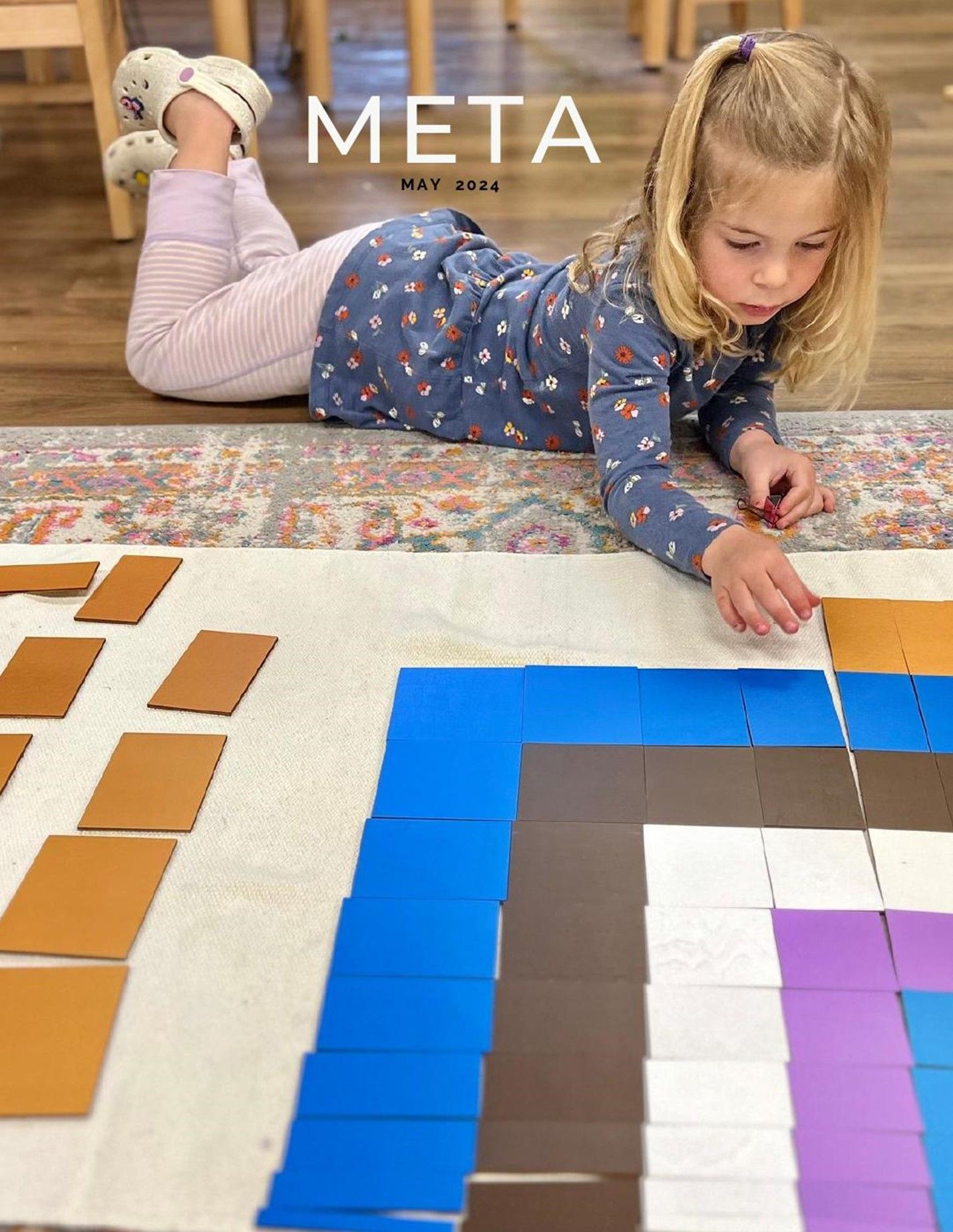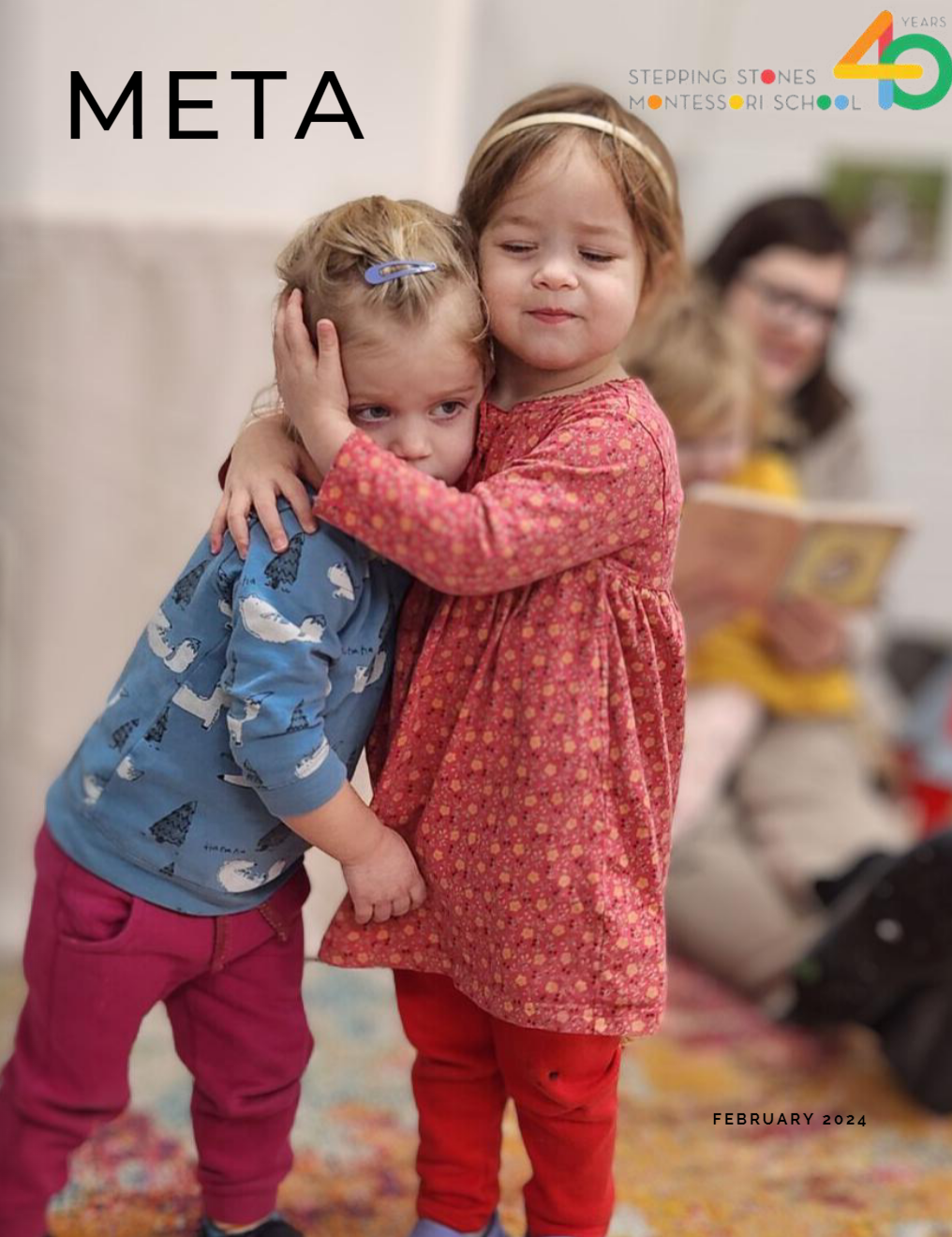““Each person deserves a day away in which no problems are confronted, no solutions searched for.””
— Maya Angelou, Wouldn't Take Nothing for my Journey Now
Our school has been learning from home for nearly three weeks due to an Executive Order regarding the spread of COVID-19. Our school’s Spring Break is scheduled for next week. Right now, my daughter and I are jokingly asking one another if we want to go to the basement for Spring Break this year.
In the meanwhile, both parents and staff are asking whether we will take Spring Break or whether our school will continue our Learning from Home lessons. The answer to that is straightforward. We will take a break.
Our Students Need a Break
This may be a bit counter-intuitive. Yes, school has been “out” for three weeks. That doesn’t mean that our students don’t need a break. During these three weeks, we have put our children in front of computers for Zoom conference calls, monitored their work, and helped them focus on academics.
We have done this while they (and we) are learning what it means to spend all of our time under the same roof because no one “goes” to work or school right now.
We have done this while they (and we) are learning what it means to order groceries for pick-up or delivery 10 days in advance.
We have done this while they (and we) are anxious and worried about a global pandemic, our health, the health of loved ones, the capacities of our health-care system, the economy, and the security of our jobs.
For most of our children, relationships are their biggest motivators for school. They love their guides and assistants, their classmates, the class pet, etc. Those motivators are currently absent, and our children have been working in spite of that loss.
At a Montessori school, work is pleasurable and success is the feeling that comes with mastery. Learning from home is a great time to revisit skills, practice them, and to build on what has been learned so far. During this time, mastery will most likely come from something that is not academic--cooking, building something in the yard, a great art project.
Finally, our guides will tell you that our students often integrate much of what they learn through a break. The child who was struggling with reading and who returns after a holiday break will suddenly be reading fluently. Or the child who could not come up with a research topic returns from break with more ideas than they can research in a year.
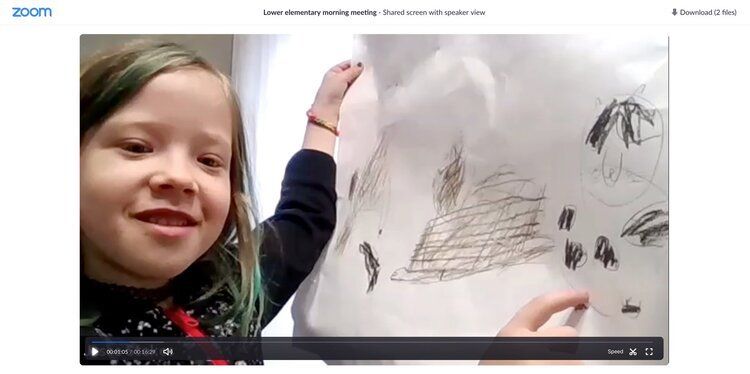
.An elementary student presenting her work on a Zoom call
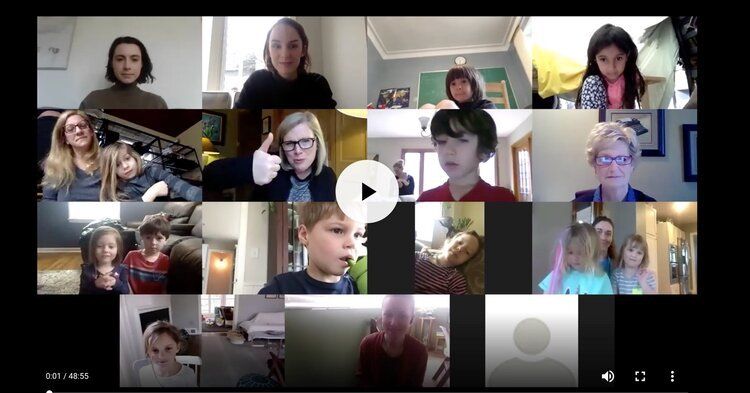
A Children’s House lesson
Our Guides and Staff Need a Break
I laugh every time someone asks what I’m doing with my time “off”. Closing our physical campus has increased, not decreased, the workload for most of our staff. And, your children’s teaching staff needs a break.
For many of our staff, they face a steep learning curve for technology. Yes. We live in a digital age. Montessori classrooms, however, are low-tech. We do not use technology to teach because research supports that digital learning before age 14 is not developmentally appropriate. Because our guides and assistants spend long days in tech-free environments, many of them are learning entirely new skills.
We are also learning to teach differently, support children differently, and support parents differently. We don’t have face-to-face moments. We cannot gently touch your child’s shoulder to remind them to focus. We can’t share a huge smile and moment of absolute joy when they master something. Instead, guides and assistants have been working extremely hard to find other ways to deliver the Montessori pedagogy to your children.
Just like you, our guides and staff are often teaching from home while their own children ask for their attention. They are also figuring out how to make an “at home” schedule work. All of the adjustments made by children are also being made by them.
And finally, just as your children are practicing to learn without face-to-face relationships with friends, peers, and classroom pets, our staff is doing the same thing. For our guides and assistants, your children are the motivator for their work. Working without the interactions we normally share makes things even tougher.
You Need a Break
You are likely working just as hard as your children and our staff to figure this stuff out. You need a break also. I know that one of the things that might help you with that is having your children occupied. And, if we take a break from Zoom lessons, schedules, and assignments, it may feel that your children will not be occupied.
That doesn’t mean you cannot take a break also. It might be more difficult than other times in your life, but after three weeks of shelter in place, you need it.

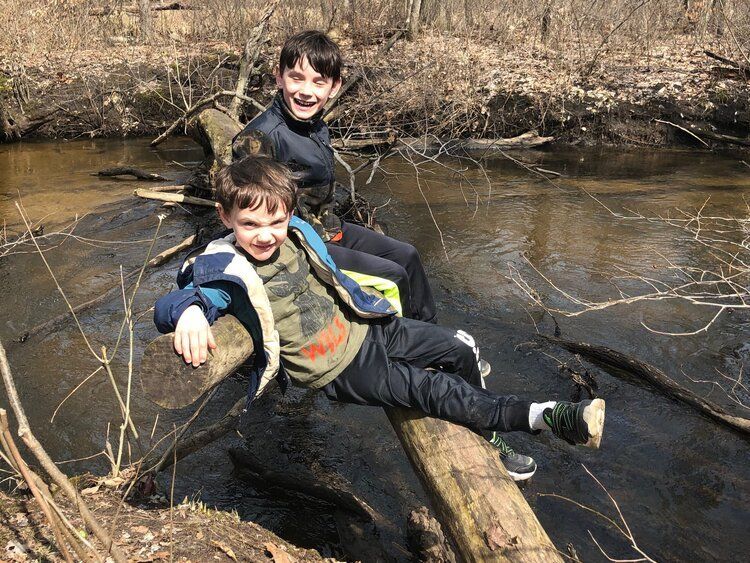
Ideas
I’d be remiss if all I did was say “take a break” without also offering some ideas for how to do that. Here are a few:
- Dinner Party--If you were planning a vacation, use that location to inspire a meal or two. For example, if you were heading to the beach, try five nights of beach-inspired food. Be sure to include the little umbrellas for drinks!
- Storytelling--Schedule a storytelling night. Children love to hear stories about their parents’ lives. Practice telling a story about your childhood. Once you’ve told it a few times, you’ll have the drama down pat! If you need resources, check out Story Be Told.
- Neighborhood Scavenger Hunts--Coordinate with your neighbors to put pictures in windows or objects on porches and lawns. Then, on your walk, you can find things along the way.
- Spring Break Dance Party--We all know what a dance party is. Make it a spring break dance party by playing music from a spring break destination.
- Throw a tropical party--Make paper leis and cups from coconut shells. Serve some Polynesian food, and hula!
- Family Reunion--Host a family reunion via Zoom or Skype. Set a time for extended family to celebrate spring break together. Take turns telling stories, play games together, and share stories.
- Get ahead on yard work--turn on some fun music and prepare the garden or the yard for all the summer fun that is sure to come!
- Give a ticket--For older children, they can enjoy the anticipation of an event yet to come. Make a ticket for a fun future event, and give it to your child, asking them to do some research about the event. Perhaps you’re planning a trip to Toronto. Ask your child to come up with sights and activities for you to do while there. A trip to a local waterpark? Ask your child to make a map for the big day.
- Take a virtual vacation—Many museums, historical sites, and tourist attractions are offering online tours. It is not the same as being there, but it might spark ideas for next spring break. Start here, at Vrbo.
- Take a trip at home--It might be too cold to spend a night under the stars, but consider setting up a tent indoors. During the day, you can hike, look for signs of wildlife, or identify plants. Pack a backpack with lunch and tools and go on your outdoor adventure. Once it is dark, have a bonfire (if you can do that safely) and gaze at stars. Be sure to pack whatever your family defines as “camping food.”
Take Time for Yourself
Finally, and perhaps most importantly, take some time for yourself. Open a “beach read”. Watch that
movie you’ve been waiting to see. Have a
spa day at home. And by all means,
open that special bottle you’ve been saving!



